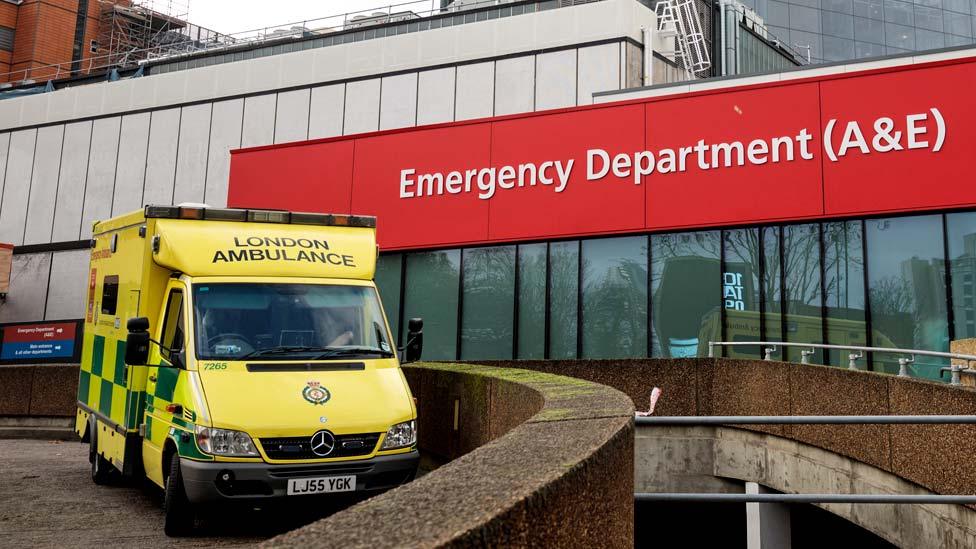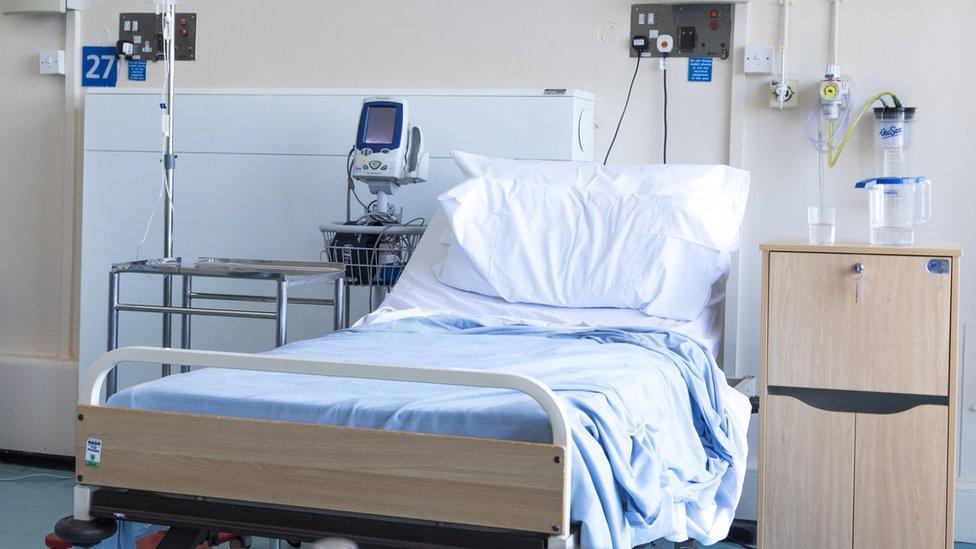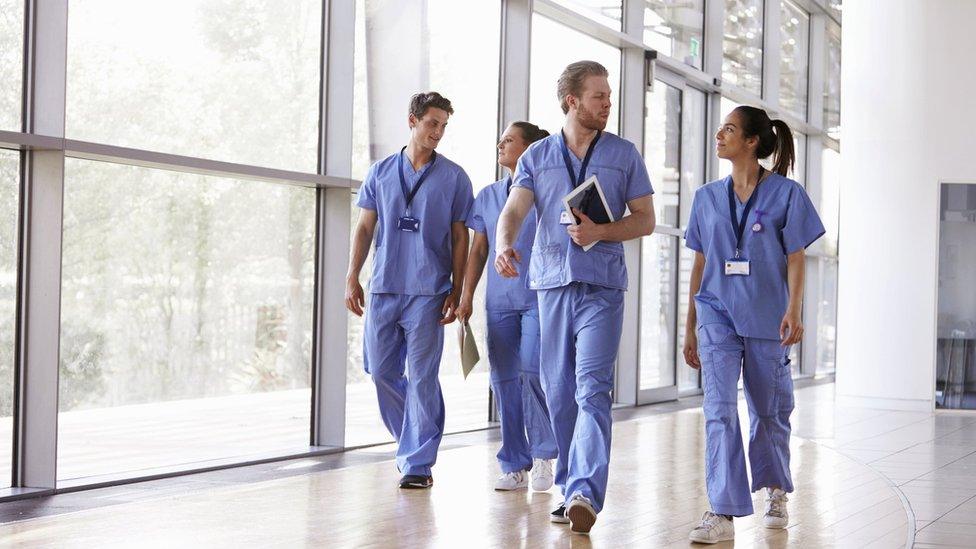General election 2019: NHS claims fact-checked
- Published

The exchanges at Prime Minister's Questions between Boris Johnson and Labour leader Jeremy Corbyn previewed one of the issues that could dominate the coming election campaign: the future of the NHS.
So what was said and who got their facts right?
Boris Johnson referred to "the 40 new hospitals that we are building"
The government pledged billions of pounds for hospital projects across England, at the start of the Conservative Party conference last month.
But while the plans include a £2.7bn investment for six hospitals over five years, a further 34 hospitals will share only an initial £100m in funding to start developing future projects.
A substantial amount of extra money would be needed to bring those plans to fruition.
So it's not correct to suggest that 40 new hospitals are currently being built.
Jeremy Corbyn said waiting times for cancer treatment had risen
Mr Corbyn is right that the NHS has become worse at meeting all of its key waiting time targets for cancer treatment.
The proportion of patients having their first treatment within 62 days of a GP referral for suspected cancer has fallen from 86% to 79% since 2010.
This is relatively small in percentage point terms, but it represents thousands of people waiting longer to be seen.

Boris Johnson said cancer survival rates had increased year on year since 2010
Cancer survival has doubled during the past 40 years and since 2010 it has continued to improve at roughly the same rate as in previous years.
Estimates suggest the proportion of people surviving for one year after their cancer diagnosis increased from 70% to 73% between 2010 and 2016 so the prime minister is correct. And that is the same rate of improvement as in the six years before that.
Mr Corbyn said the NHS was experiencing the longest spending squeeze in its history
It's certainly true to say this has been the most dramatic spending squeeze in the history of the NHS in England. The NHS budget has never fallen under any government and on average it has risen by 3.6% a year, allowing for inflation (rising prices) since 1949.
But between 2010 and 2018, it rose by just 1.3% on average. Last year, more money was announced that will bring the annual increase over the next five years to 3.4% - below the long-term average but an increase on most of the past decade.

Mr Johnson said there were 17,000 more NHS doctors and over 17,000 more nurses on wards than in 2010. Mr Corbyn said 43,000 new nurses needed to be recruited to fill vacancies.
The prime minister's figures are broadly correct.
According to NHS workforce data, external, there are now 18,055 more doctors employed directly by the NHS to work in hospitals than there were in May 2010, and 16,989 more general nurses.
Mr Corbyn is also correct to say there are currently about 43,000 nursing vacancies across the NHS.
Why do we need roughly 60,000 more nurses now than we did a decade ago? Because the UK population is ageing and increasing - that's why healthcare is such an important political issue.
Mr Johnson highlighted missed targets in Wales, while Mr Corbyn did the same for England
NHS Wales is run by the Labour-led Welsh Government, while NHS England is under the control of the Conservatives.
There is a list of targets that haven't been met by both health services, including the widely publicised accident and emergency waiting times.
This target aims to ensure at least 95% of patients who attend A&E are dealt with within four hours of arriving.
It hasn't been met in England since 2015, while in Wales it has not been met in at least a decade.
The Welsh Government allocates budgets for certain departments, such as health and education, but the overall pot is broadly determined by central government. And Mr Corbyn said the problems in Wales stemmed from cuts by Conservative central governments to the Welsh Government budget.
Funding was cut, external between 2011 and 2017 before it started slowly increasing again. But real-terms spending in Wales on public services overall won't return to where it was in 2010 for another three years.
Finally… the effect of Brexit on the NHS
Expect to hear a lot from Labour in this election about a post-Brexit "Trump trade deal" and the price the NHS would pay as a result.
Mr Corbyn certainly pushed the point home in Parliament, while the prime minister insisted the NHS would always be protected. In the end, as with so much in Brexit, it depends on what is negotiated.


